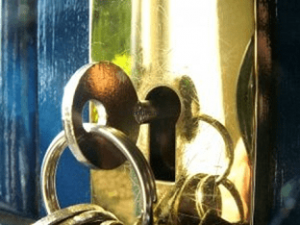 Mortgage fraud is prevalent, and this type of fraud helps scammers earn very high profits through illegal means, while taking on a very low risk of being discovered.
Mortgage fraud is prevalent, and this type of fraud helps scammers earn very high profits through illegal means, while taking on a very low risk of being discovered.
Those who participate in mortgage fraud may include mortgage brokers, appraisers, lenders, underwriters, real estate agents, accountants and attorneys. Others who may be part of mortgage fraud include investors, land developers, trust account and bank account representatives.
There have been many instances where organized criminals are part of mortgage fraud, too. Organized crime groups from Russia, Asia and the Balkans have already been linked to these crimes, primarily in the loan origination or short sale capacities.
What Type of People Commit Mortgage Fraud?
Those who commit mortgage fraud often use their experience in mortgage and banking-related industries, such as finance, sales, law or construction, to exploit the vulnerabilities in the banking or mortgage sectors.
They plan out elaborate schemes, and because of their skills, they often have high-level access to mortgage systems, financial documents, notary seals, mortgage origination software or professional licensure information. All of this information is necessary to commit this type of fraud, and they easily can adapt to changes in the regulations, which allows these people to create new schemes.
The people who commit mortgage fraud target their victims based on demographics, and look at features of these people such as age, nationality, ethnicity and socioeconomic variables.
They recruit help to target these victims, and these helpers have access to a variety of tools that allow them to do things such as produce deposit verifications, falsify bank statements, engage in illegal transfer of property and falsify income levels. They have also been known to recruit those who are part of ethnic communities.
Protecting Yourself from Mortgage Fraud
These victims of mortgage fraud are often the victims of identity theft, too. When applying for a mortgage, not only do you have to be leery about those in the mortgage industry, you also have to worry about your identity being stolen and someone buying a home in your name.
Fortunately, there are some things that you can do to protect yourself from this type of fraud. The Consumer Protection Branch of the Civil Division of the Justice Department is committing to prosecuting these scammers and bringing justice to all of the victims. But, these individuals can also protect themselves from these fraudsters.
Here are a few tips:
- Be aware of people who contact you about a mortgage through radio or television, through the Internet or through the form of flyers. It the deal sounds too good to be true, it likely is.
- Look upon loan modification services with suspicious eyes, especially those that require an up-front fee or ask you to sign a contract. In most cases, these fees are illegal, and loan modification and counseling are free services.
- Do not transfer the title of your home or make a mortgage payment to any person or company other than your lender.
- Carefully look at all identifying features of mortgage rescue companies. This includes logos, seals, names and other representations. These are often designed to deceive borrowers to believe that they are affiliated with a government agency. This shocks many people who are expecting to benefit from a government program, and then learn later, that they are committed to a type of loan that requires repayment. Real government entities will never ask for payment in advance or guarantee any specific results.
- Some scammers are pushing products such as reverse mortgages, but in fact, these are not true reverse mortgages and instead are other financial products. Avoid any brokers that ask you to obtain a loan to purchase products such as annuities or long-term care insurance.
If you think you may have been the victim of some kind of mortgage fraud, reach out to Stopfraud.gov for more details.









